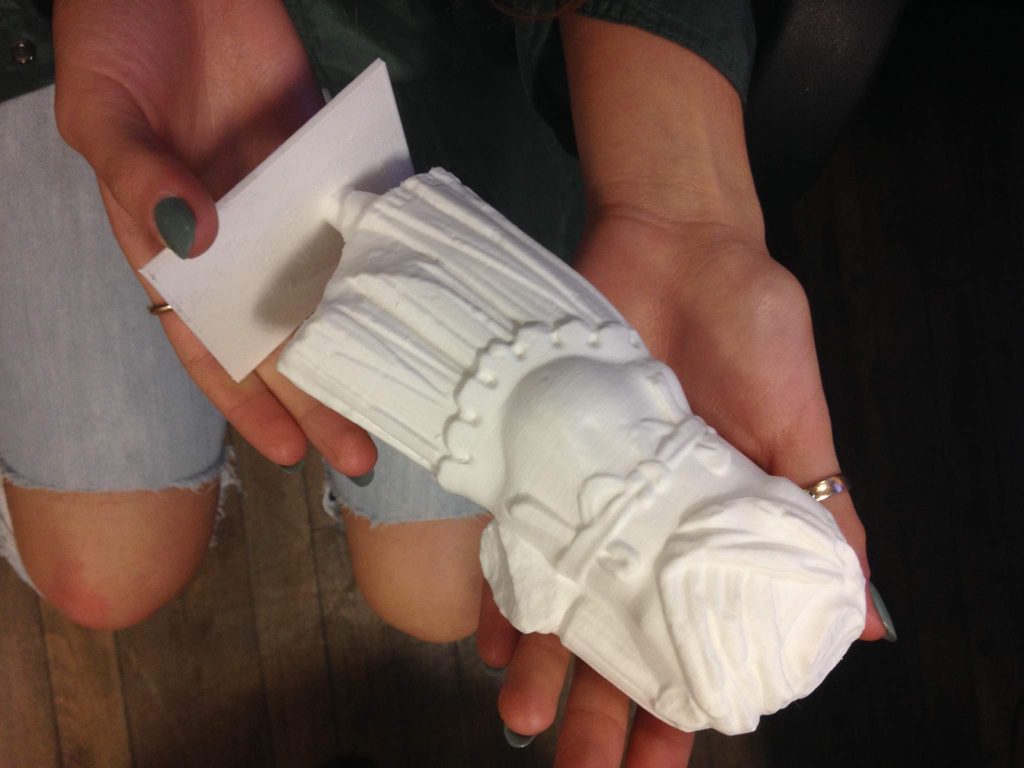The UK Department for Culture, Media & Sport has released a Digital Strategy for economic, educational and infrastructural growth of the nation. The policy follows a seven prong plan touching on the concepts of Makerspaces, FabLabs, 3D imaging, intellectual property for 3D printing, and growing international Tech Hubs.
In a statement on the strategy the Rt. Hon Karen Bradley MP, UK Secretary of State for Culture, Media and Sport, explains,
Every individual and every business should have the skills and confidence to seize the opportunities of digital technology and have easy access to high-quality internet wherever they live, work, travel or learn.
Making the UK the best place to start and grow a digital business
Tech City UK is the government’s branch for digital development of businesses throughout the UK. The initiative seeks to connect “the UK’s fastest growing, and most disruptive digital tech companies through a unique programme of networking opportunities, private partnerships and direct links to the UK government.”
Initially set up in the Shoreditch district of East London in 2010, the initiative has since expanded into cities such as Manchester, Liverpool, Leeds, Sheffield and Newcastle. In the annual budget for 2017, the UK government set aside half a billion pounds to invest in the economic growth of these cities, known under the “Northern Powerhouse” umbrella.
One of the developments included in this investment is Sheffield’s Advanced Manufacturing Innovation District, incorporating the expertise of companies such as Rolls Royce alongside a reconfigurable smart factory, “Factory 2050”.

In February 2017, London Mayor Sadiq Khan also announced plans for a hub of industry in East London. As part of a total regeneration of the area, Silvertown is expected to feature the largest 3D printing facility in the UK.
Tech Hubs, Fab Labs and Makerspaces
The document also states that “we will work to establish a network of UK Tech Hubs,” outside of the UK in order to “boost our impact in emerging digital economies around the world”.
Founded in 2012 Israel Tech Hub is the UK’s first venture in this vision, connecting a site in London with one in Tel Aviv.

Of these shared areas of expertise, 3D printing has significant applications in “Cleantech” and “Biomed”, as seen in recent applications in recycled energy, and 3D printed pharmaceuticals.
Though not explicitly linked with 3D printing, Tech Hub UK is a similar concept to the Fab City movement originating in Barcelona. By the year 2054, Fab Cities seek to connect as many independent manufacturing facilities around the globe as possible. London is yet to make that list.
In addition, libraries across the UK, and particularly in Scotland, have started to provide 3D printing facilities. With additional CNC and laser cutting capabilities, some libraries have even started hosting Fab Labs and Makerspaces.
Noting this development, the Digital Strategy states,
We will bring together people from across sectors to collaborate and support the expansion of makerspaces in public libraries in England.
Intellectual property
The Digital Strategy also features direct mention of 3D printing in relation to a digital intellectual property regime. Section 3 states,
We need to make sure that the IP rules keep up with technological change. We will, for example, conduct research to look at 3D printing technology and how IP rights apply to 3D files and products. We will legislate through the Digital Economy Bill to give designers a new way of giving the public notice of their IP rights with a web address.
Australia’s addition Commonwealth Scientific and Industrial Research Organisation (CSIRO) have also outlined similar stipulations surrounding IP in their National Innovation and Science Agenda, and IP protection remains one of the key preoccupations of 3D printable file sharing websites such as Thingiverse and MyMiniFactory.
3D imaging for digital culture
A Cultural Protection Fund of £30 million has been launched to help the UK conserve and protect cultural heritage. The policy outlines that “We expect new technologies such as 3D imaging and video recording to be a key element of this work” hinting towards the proliferation of 3D scanning and printing projects across the globe.
The overall aim is “to accelerate the digitisation of culture, and make culture accessible for all” including improvements to how visitors engage with museum content, and “make the UK one of the world’s leading countries for public collections content.”
With projects such as MyMiniFactory’s Scan the World art and sculpture archive, 3D imaging of artefacts often goes hand in hand with 3D printing. In a previous feature for 3D Printing Industry, the Scan the World project is highlighted for its educational benefits and accessibility.

3D Printing Industry will have more updates on how 3D technologies are implemented in the UK Digital Strategy. To be the first to know about such developments you can sign up to our newsletter here, or follow us on our regularly updated social media channels.
Featured image shows Westminster, including London’s Houses of Parliament. Photo by Ged Carroll, on Flickr as renaissancechambara


